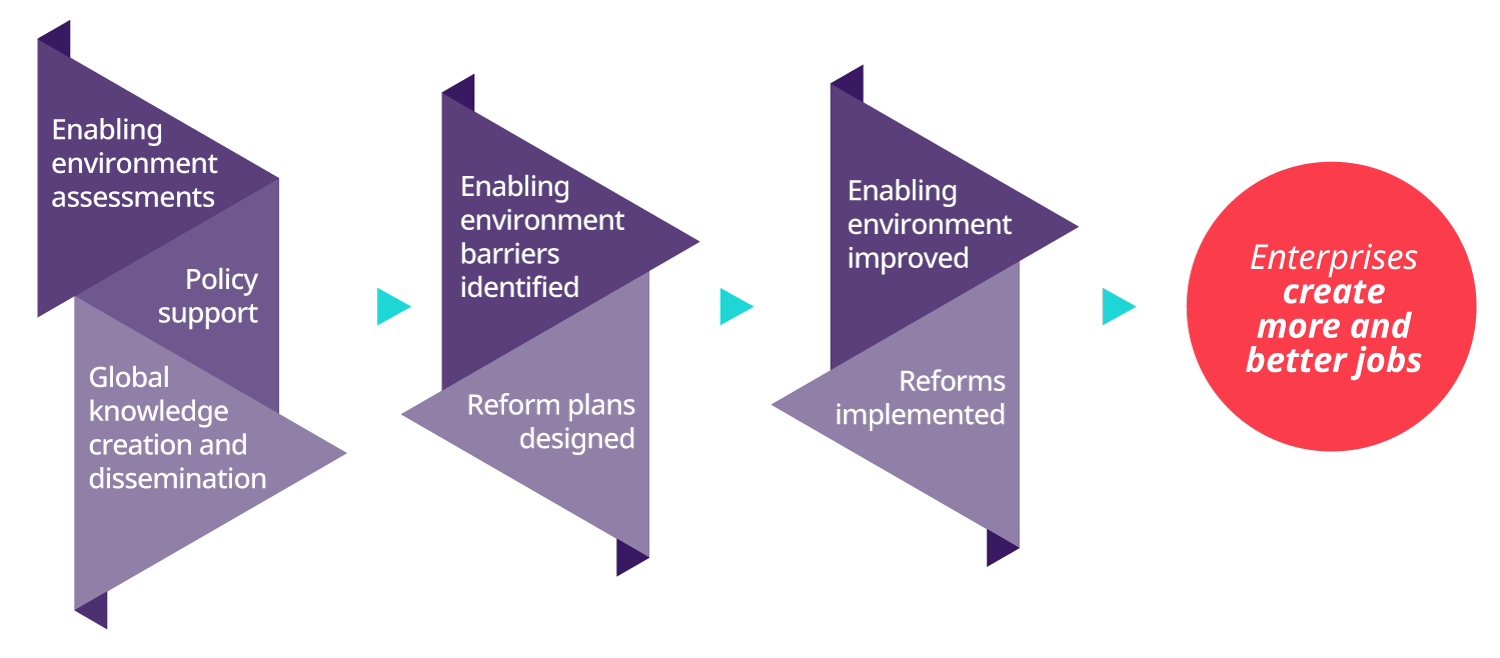
Every seed deserves good soil to grow
The EESE programme works to improve the enabling conditions
for enterprise creation and growth,
creating fertile ground for a successful business.

The EESE programme works to improve the enabling conditions
for enterprise creation and growth,
creating fertile ground for a successful business.
The EESE team aims to improve the Enabling Environment for Sustainable Enterprises, by:
EESE uses a comprehensive and powerful methodology developed to assess, advocate and reform the environment in which enterprises start up and grow.
Small and medium enterprises are often hit harder by an unconducive enabling environment. Improving it helps them to access new services to:
In 2007, the International Labour Conference adopted the Conclusions Concerning the Promotion of Sustainable Enterprises. The conclusions define an Enabling Environment for Sustainable Enterprises, which combines these elements:




The EESE programme is the real-world application of the 2007 Conclusions. Through EESE, the ILO helps its tripartite constituents - governments, employers, and workers - assess the enabling environment, define action plans for change, and implement reforms that make it easier to start and grow businesses that create more and better jobs.
It is the combination of conditions that affect an enterprise's capacity to start up, grow and create decent jobs.
An enabling environment seeks to improve the economic prospects, particularly of small and medium enterprises, overcome decent work deficits for workers and ensure that economic activities are environmentally sustainable.
EESE designs and implements activities with the ultimate goal of creating more and better jobs in small and medium enterprises. Our theory of change shows how, by supporting tripartite partners in analyzing the enabling environment, developing action plans, designing and implementing reforms, EESE contributes to improving the enabling environment, thus making enterprises an engine to create more and better job.


The first step in any EESE intervention is an assessment of the current situation of the enabling environment. EESE works with ILO constituents and local stakeholders to assess, based on constituents' demand, the enterprises' economic, political, social, and environmental context, and prioritize reforms. Based on the results of the assessment, the partners agree on action plans for reform.





We go beyond country level enabling environment assessments. The EESE team also works to document and promote effective policy initiatives to improve the Enabling Environment for Sustainable Enterprises, through:
EESE also develops new knowledge and technical skills on the Enabling Environment for Sustainable Enterprises, on issues such as:
Preferential tax regimes, just transition and business environment, use of big data for policy design...
As of December 2020
Countries
Enterprises surveyed
Workers interviewed
Thematical action plans
developed
Business environment
reforms implemented